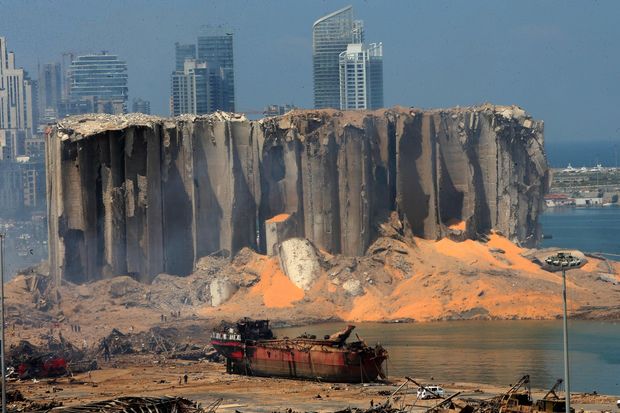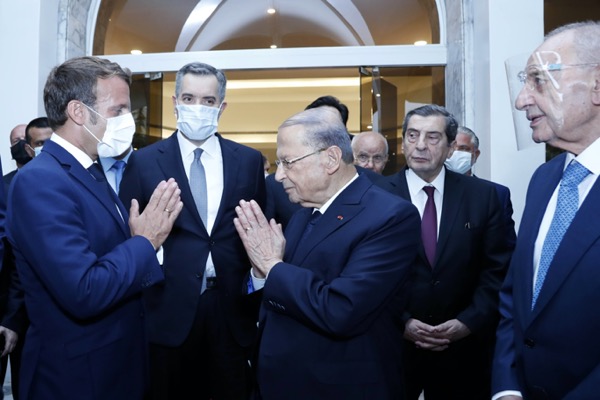Beirut , Lebanon – From the Beirut port blast to premier-designate Mustapha Adib stepping down on Saturday after less than a month of trying to form a new cabinet, here are developments in crisis-hit Lebanon:

– Devastation –
On August 4, one of the world’s biggest ever non-nuclear explosions destroys much of Beirut’s port and devastates swathes of the capital.
The detonation was caused by a fire in a warehouse which Lebanese authorities acknowledge held a vast stockpile of ammonium nitrate for the past six years.
The huge explosion leaves more than 190 dead, over 6,500 injured and ravages large parts of Beirut.
The tragedy strikes as Lebanon has for months been mired in its worst economic crisis in decades, marked by an unprecedented depreciation of its currency, massive layoffs and drastic banking restrictions.
– ‘Apocalyptic situation’ –
Beirut is in a state of shock, with residents looking for the missing, tending to the wounded and searching gutted buildings for pets and belongings.
It is an “apocalyptic situation”, says Beirut governor Marwan Aboud, a day after the blast. A state of emergency is declared. International aid starts to fly in.
– Macron weighs in –
On August 6, Macron visits Beirut and walks through the devastated Beirut neighbourhood of Gemmayzeh.

His visit is praised by many Lebanese angry at their own leaders, whom they accuse of corruption and incompetence.
Macron calls for an international probe and for the “deep changes” that the Lebanese population has been demanding for months.
President Michel Aoun the next day rejects any international probe into the disaster.
– Protests –
On August 8, following a handful of lawmakers resigning, thousands of Lebanese call for vengeance against their leaders over the explosion.
Clashes erupt between security forces, using tear gas and rubber bullets, and protesters.
Demonstrators storm a series of ministries and the banking association, occupying the foreign ministry for several hours.
– International aid –
On August 9, the international community pledges around $300 million in emergency aid at a video conference jointly organised by France and the United Nations.
The international community promises to stand by Lebanon but demands that its aid be directly distributed to the population, and a transparent probe be carried out.
– Government resigns –
On August 10, prime minister Hassan Diab announces the resignation of his government.
Demonstrators again take to the streets of Beirut and clash with security forces.
– System criticized –
On August 28, Macron points to the “constraints of a confessional system” in a country where political posts are allocated by sect.
“If we let Lebanon go… it will be civil war,” he warns.
Two days later, Hassan Nasrallah, chief of the powerful Shiite Muslim movement Hezbollah, says his group is “open” to a French proposal for a new political pact for Lebanon.
Aoun calls for the proclamation of a “secular state” during a televised address to mark the centenary of the Lebanese state.
– New premier –
On August 31, diplomat Mustapha Adib is named as Lebanon’s new premier.
He vows to carry out reforms demanded by the international community and to conclude an accord with the International Monetary Fund.
Macron lands in Beirut hours later, extracting a promise from all political sides to help Adib form a crisis government of independents in less than a fortnight.
– PM-designate resigns –
On September 26, less than a month later, Adib bows out, apologising to the Lebanese people over his “inability to realise its aspirations for a reformist team”.
His resignation follows weeks of deadlock, including over the insistence of the two main Shiite parties Hezbollah and Amal on keeping the finance ministry under their control.
President Michel Aoun accepts Adib’s resignation and is set to “take the appropriate measures according to the requirements of the constitution”.

Leave a Reply